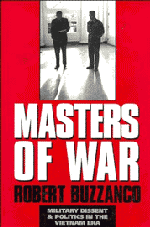Book contents
- Frontmatter
- Contents
- Acknowledgments
- List of Abbreviations
- 1 Introduction: Losing Battles and Winning Wars
- 2 Prologue to Tragedy: U.S. Military Opposition to Intervention in Vietnam, 1950–1954
- 3 Preparing for and Avoiding War: Military Affairs and Politics in Vietnam and the United States, 1955–1960
- 4 Pinning Down the President: JFK, the Military, and Political Maneuvering over Vietnam, January-October 1961
- 5 The Best and Worst of Times: The U.S. War against Vietnam, October 1961–November 1963
- 6 “Seeing Things Through in Vietnam”: LBJ, the Military, and the Growing U.S. Commitment to Vietnam, November 1963-December 1964
- 7 Hope for the Best, Expect the Worst: U.S. Ground Troops Enter the Vietnam War, January-July 1965
- 8 War on Three Fronts: U.S. Forces versus the Viet Cong, Westmoreland versus the Marines, and Military Leaders versus the White House, July 1965-December 1966
- 9 “The Platform of False Prophets Is Crowded”: Public Hope and Private Despair in Vietnam, 1967
- 10 The Myth of Tet: Military Failure and the Politics of War
- 11 Conclusion: Bringing It All Back Home
- Epilogue: “This Is a Real War”: Military Dissent and Politics after Vietnam
- Bibliography
- Index
8 - War on Three Fronts: U.S. Forces versus the Viet Cong, Westmoreland versus the Marines, and Military Leaders versus the White House, July 1965-December 1966
Published online by Cambridge University Press: 05 August 2012
- Frontmatter
- Contents
- Acknowledgments
- List of Abbreviations
- 1 Introduction: Losing Battles and Winning Wars
- 2 Prologue to Tragedy: U.S. Military Opposition to Intervention in Vietnam, 1950–1954
- 3 Preparing for and Avoiding War: Military Affairs and Politics in Vietnam and the United States, 1955–1960
- 4 Pinning Down the President: JFK, the Military, and Political Maneuvering over Vietnam, January-October 1961
- 5 The Best and Worst of Times: The U.S. War against Vietnam, October 1961–November 1963
- 6 “Seeing Things Through in Vietnam”: LBJ, the Military, and the Growing U.S. Commitment to Vietnam, November 1963-December 1964
- 7 Hope for the Best, Expect the Worst: U.S. Ground Troops Enter the Vietnam War, January-July 1965
- 8 War on Three Fronts: U.S. Forces versus the Viet Cong, Westmoreland versus the Marines, and Military Leaders versus the White House, July 1965-December 1966
- 9 “The Platform of False Prophets Is Crowded”: Public Hope and Private Despair in Vietnam, 1967
- 10 The Myth of Tet: Military Failure and the Politics of War
- 11 Conclusion: Bringing It All Back Home
- Epilogue: “This Is a Real War”: Military Dissent and Politics after Vietnam
- Bibliography
- Index
Summary
Those [Pentagon] officials and some White House and State Department advisers appeared to scorn professional military thinkers in a seeming belief that presumably superior Ivy League intellects could devise some political hocus-pocus or legerdemain to bring the enemy to terms without using force to destroy his war-making capability.
William Childs WestmorelandDean Rusk may have used silence to express his reservations, but other officials would become increasingly vocal throughout 1965 and 1966 in pointing out the pitfalls facing U.S. forces in Vietnam and in criticizing Westmoreland's approach to the war. During that period the three factors that had principally characterized America's problems in Vietnam – the U.S. military's recognition of its foundering position, interservice feuding, and political maneuvering – became more pronounced and showed just how elusive success had become. By late 1966 it was clear that American forces had not been able to reverse conditions on the ground, while military leaders were aware of the limits to be placed on their operations. The services themselves were brawling over MACV strategy, and influential officials were sounding alarms about the U.S. future in Vietnam. Maybe most important, Lyndon Johnson's political career was on the line as the war in Indochina replaced the War on Poverty as the dominant national issue. Although the conflict would continue for many more years, the blueprint for failure had been drawn at the outset of intervention.
- Type
- Chapter
- Information
- Masters of WarMilitary Dissent and Politics in the Vietnam Era, pp. 229 - 274Publisher: Cambridge University PressPrint publication year: 1996



